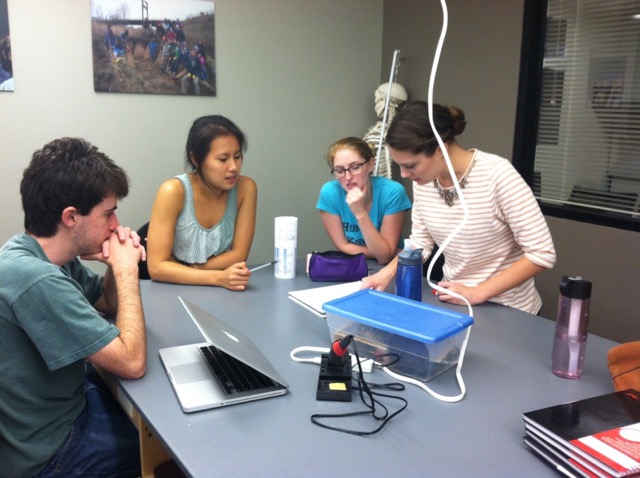
Undergraduate students majoring in science, math or engineering subjects have the opportunity to make a difference in high-needs secondary schools while earning teaching licensure and a master’s degree from Vanderbilt’s Peabody College of Education and Human Development.
The Vanderbilt-Fisk Noyce Program is actively seeking applicants who are rising seniors and STEM majors at either Vanderbilt or Fisk University. The deadline for applications is Dec. 31.
“This program is ideally suited for STEM students who decided later in their undergraduate trajectory to pursue a career in teaching after graduation and who want to make a difference in high-needs schools,” said Heather Johnson, director of Mobilizing STEM Talent for STEM Teaching, funded through the National Science Foundation’s Robert Noyce Scholarship Program.
“Participants from Vanderbilt or Fisk University can start this fall by adding a few education classes to their senior year schedule. Many seniors have much of their core coursework completed and these classes will help move them more quickly toward earning their M.Ed.,” explained Johnson, assistant professor of the practice of science education.
Noyce Scholars will gain experience in middle school and high school classrooms once a week during senior year under the supervision of faculty mentors — all while receiving a monthly stipend. After completing their undergraduate degree, participants would receive a full-time residency placement in a middle or high school Metro Nashville Public Schools (MNPS) classroom during the additional one year to completion of their M.Ed.
In return for the NSF-funded support, participants would agree to teach in a high-needs school anywhere in the country for three years.
The program also is seeking students who are completing Ph.D. degrees in STEM disciplines. In their final writing year, Ph.D. candidates would gain weekly classroom experience through the Scientist in the Classroom Partnership Program while taking education coursework that would prepare them to be instructors of record in an MNPS middle or high school classroom while completing their licensure requirements. The Noyce program would provide a monthly stipend to help defray the cost of licensure.
“This is for undergraduates and Ph.D. students who love the sciences and want to share their knowledge and enthusiasm with children in high-needs schools who can really benefit from that wonderful energy,” said Johnson.
“In exchange, they have the opportunity to enter a vocation and receive a graduate education under the mentorship of experienced faculty committed to serving the needs of urban schools. It’s an opportunity to gain a vocation, advance their education and make an impact, all at the same time.”
Noyce Program partners, in addition to the NSF, are Vanderbilt, Fisk and MNPS. The Robert Noyce Teaching Scholarship is funded by National Science Foundation grant #1439866.